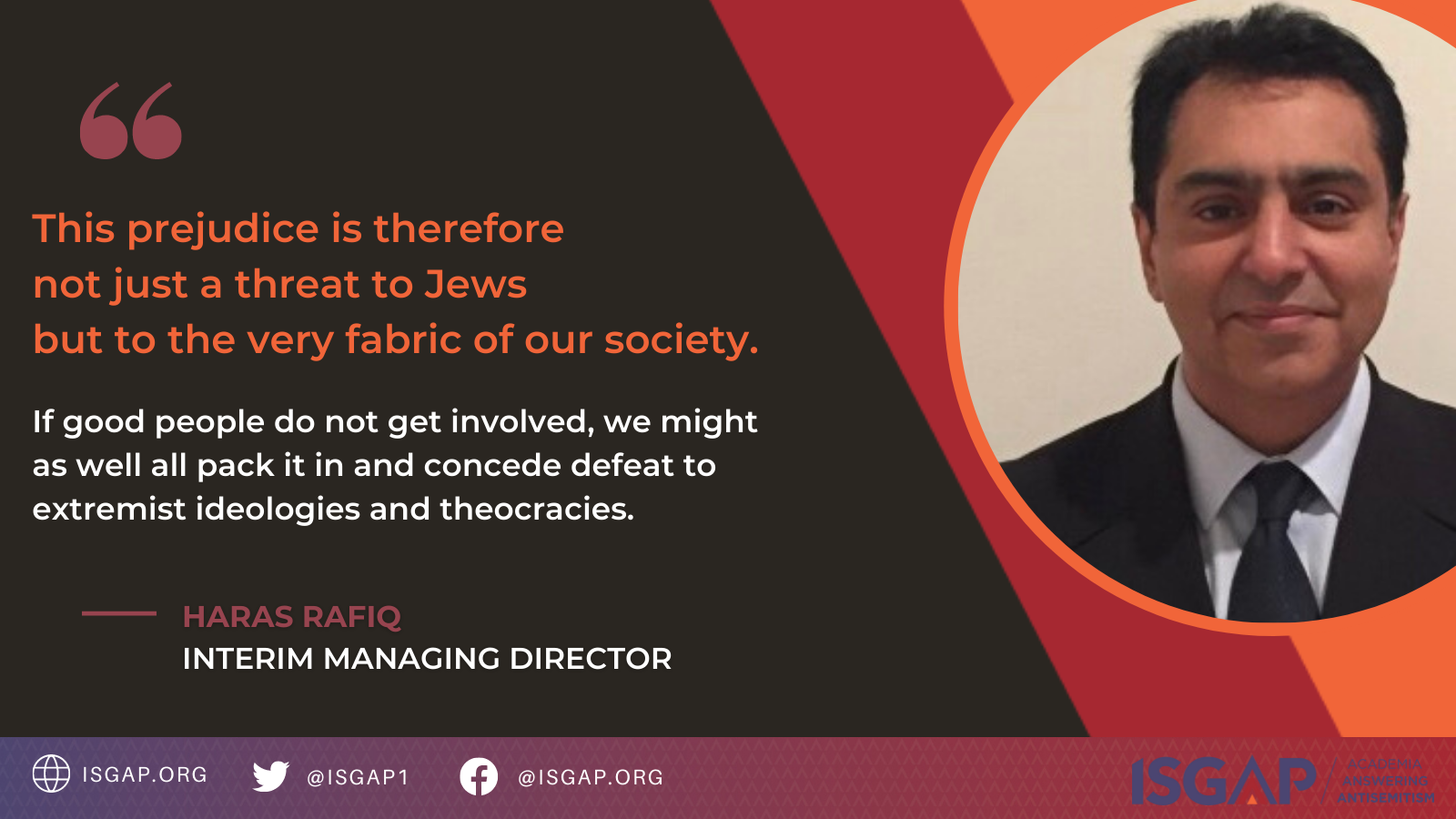Why should I, as a Muslim, care about mapping, decoding and combating antisemitism? This is a question that has been asked of me on many occasions, in conversations and various contexts. Of course, the usual tropes have been dished out including, “Don’t you care about Palestinians?”, “Why are you selling yourself to the most powerful lobby in the world?” and “What about Islamophobia?”
Regardless of whether I regard the term “Islamophobia” as valid (which I do not — I prefer anti-Muslim hatred), why does it have to be either/or? And what is wrong with working to combat bigotry of all kinds?
According to the ever-increasing polarisation and shifts towards tribalistic gangs, we have to adopt extreme positions and close our minds to all kinds of critical enquiry. These positions are then based on fermenting hatred of anyone who does not fit into their worldview. This is something that I refuse to accept.
I have spent the last 17 years trying to combat extremism and, after the terrorist attacks in London in July 2005, this has primarily been focused on Islamist radicalism, as that was (and still is) the most dangerous set of ideas that are a threat to the society that I live in.
But in around 2016, myself and my former colleagues recognised that there was a new phenomenon that was raising its ugly head that we termed the ‘Triple Threat’. This is the increasing growth of the regressive left, the far right and Islamist theocracy.
The one type of hatred that binds all three of these is hatred of the Jew, the oldest bigotry that we still have in modern existence. Antisemitism is used as a recruiting sergeant for all three of these and has become the fuel that drives these ideologies. This prejudice is therefore not just a threat to Jews but to the very fabric of our society.
There are many good organisations to try and combat the manifestations of this hatred that has been taking rot in the intellectual space at our universities. Some have a student focus, others are country specific, and some are doing good work to empower academia. However, the only one that I know of that does all three and has global reach is the Institute for the Study of Global Antisemitism and Policy (ISGAP) — a global interdisciplinary research centre dedicated to the academic study of contemporary antisemitism and then fighting it on the battlefield of ideas.
ISGAP’s mission is to map and decode antisemitism within a comprehensive, interdisciplinary framework, from an array of approaches.
ISGAP runs regular courses and seminars from world class universities across the world, including Oxford and Cambridge in the UK, as well as a successful summer institute at the former that has trained hundreds of scholars who have then gone on to develop curricula to then teach at their own colleges. Its researchers have uncovered billions of undocumented dollars that have flooded into our universities from countries that prop up Islamism and its fellow travellers.
One of the most interesting projects that we have embarked on is to work with scholars to devise an educational framework to identify and then tackle contemporary antisemitism, at the Woolf Institute at Cambridge. And under the directorship of Charles Small we will train early career professors in this subject, which has been a taboo within universities for far too long.
If good people do not get involved, we might as well all pack it in and concede defeat to extremist ideologies and theocracies.
This is why I, as a Muslim who has been at the forefront of trying to combat extremism for all of these years, is honoured to have been appointed the Interim Managing Director of ISGAP.
To take a saying from Islam, from Sayidna/Imam Ali (The Prophet Muhammad’s son in law and a leader of Muslims): “We are all brothers and sisters in faith and at the very least, partners in humanity”.
It is this humanity that is under threat from antisemitism.

